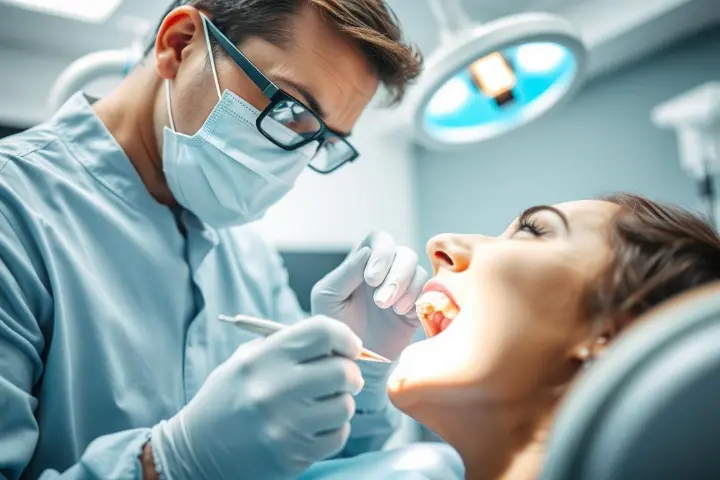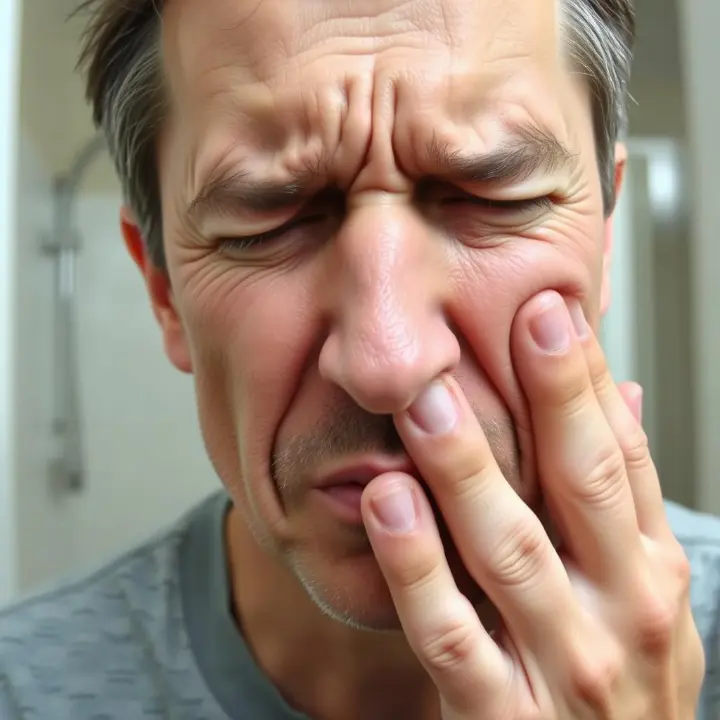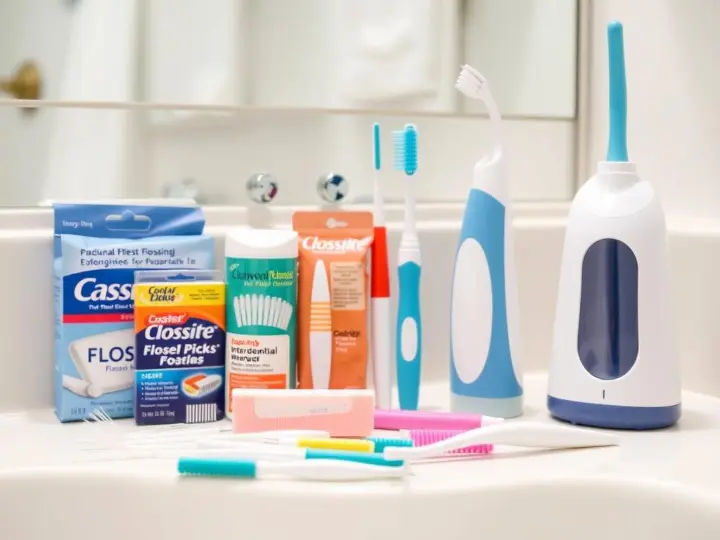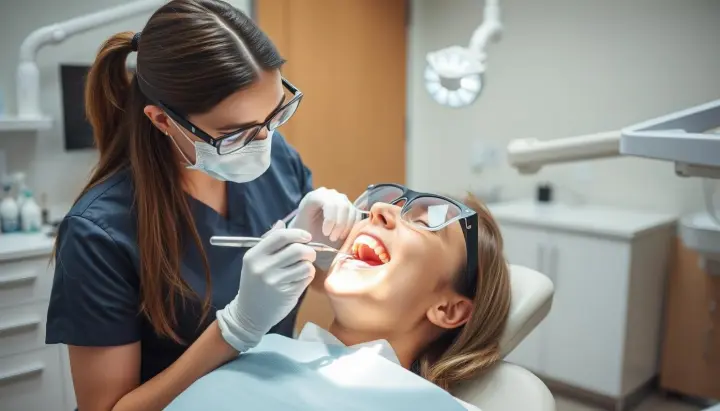If you've scrolled through social media lately, you've likely encountered videos praising oil pulling as a miracle cure for everything from cavities to bad breath. This ancient Ayurvedic practice involves swishing oil around in your mouth for up to 20 minutes, supposedly drawing out toxins and improving oral health. But while influencers enthusiastically promote this technique, dental professionals often take a different stance.
So why do dentists not recommend oil pulling despite its growing popularity? In this article, we'll explore the scientific evidence behind oil pulling, examine why dental professionals remain skeptical, and provide evidence-based alternatives for maintaining optimal oral health.
Oil pulling has gained popularity on social media, but dental professionals remain skeptical about its benefits.
What Is Oil Pulling and Why Is It Popular?
Oil pulling is an ancient practice that originated in India as part of Ayurvedic medicine thousands of years ago. The technique involves swishing oil (typically coconut, sesame, or sunflower) around in your mouth for 5-20 minutes before spitting it out. Traditionally, practitioners believed this process would "pull" toxins from the body through the mouth, improving overall health.
In recent years, oil pulling has experienced a significant resurgence, particularly on platforms like TikTok and Instagram. Proponents claim it can:
- Whiten teeth naturally
- Reduce plaque and prevent cavities
- Eliminate bad breath
- Improve gum health
- Remove toxins from the body
- Reduce inflammation
The appeal is understandable—a natural, inexpensive alternative to conventional dental products that promises multiple benefits. But does the science support these claims? Let's examine what research actually tells us about oil pulling.
Common oils used for oil pulling include coconut, sesame, and sunflower oils.
The Science Behind Oil Pulling: What Research Actually Shows
When dental professionals evaluate any oral health practice, they rely on peer-reviewed scientific research rather than anecdotal evidence. So what does the research say about oil pulling?
Limited Scientific Support
While some small-scale studies suggest oil pulling may reduce plaque and bacteria in the mouth, the overall body of research remains limited and inconclusive. Most studies feature small sample sizes, short durations, and methodological limitations that make it difficult to draw definitive conclusions.
According to the American Dental Association (ADA), "scientific studies have not provided the necessary clinical evidence to demonstrate that oil pulling reduces the incidence of dental caries, whitens teeth or improves oral health and well-being."
Plaque and Bacteria Reduction
Some studies have shown that oil pulling with sesame oil may reduce plaque and certain bacteria in the mouth. A 2009 study published in the Indian Journal of Dental Research found that oil pulling reduced plaque and gingivitis, though the effects were not as significant as chlorhexidine mouthwash.
However, these modest benefits don't necessarily translate to preventing cavities, gum disease, or other serious oral health conditions that require professional treatment.

Scientific research on oil pulling remains limited, with insufficient evidence to support many claimed benefits.
Lack of Evidence for Major Claims
Despite widespread claims on social media, there is no substantial scientific evidence that oil pulling:
Unproven Claims About Oil Pulling
- Whitens teeth (no clinical studies support this claim)
- Prevents or reverses tooth decay
- Eliminates the need for professional dental care
- "Detoxifies" the body (a scientifically questionable concept)
- Treats serious gum disease or periodontitis
- Provides systemic health benefits beyond the mouth
Dr. Matt Messina, clinic director of Ohio State Upper Arlington Dentistry, notes: "Oil pulling is a historic method that has been supplanted by better ways to clean our teeth. While it's not harmful, there's no scientific basis to say that it's particularly beneficial either."
Why Dentists Don't Recommend Oil Pulling: Key Concerns
Dental professionals have several specific concerns about oil pulling that lead them to discourage the practice as a primary oral hygiene method:

Dentists recommend evidence-based practices over oil pulling for maintaining oral health.
1. Delayed Professional Treatment
Perhaps the most significant concern is that people may use oil pulling as a substitute for proven dental treatments. This delay in seeking professional care can allow dental problems to worsen, potentially leading to more extensive and expensive treatments later.
Dr. Mark Wolff, dean of Penn Dental Medicine, warns: "The only time oil pulling could be considered dangerous is if someone has an infection or periodontal disease and is using oil pulling instead of a known beneficial treatment."
2. Potential Risks and Side Effects
While generally considered safe when used properly, oil pulling isn't entirely without risks:
- Lipoid pneumonia risk: If oil is accidentally aspirated (inhaled) into the lungs
- Upset stomach or diarrhea: If large amounts of oil are swallowed
- Jaw discomfort: From prolonged swishing motion
- Time inefficiency: 20 minutes daily could be better spent on proven methods

Extended oil pulling sessions can sometimes cause jaw discomfort.
3. Misunderstanding of "Detoxification"
Many oil pulling advocates claim the practice "detoxifies" the body, but this concept lacks scientific validity. The human body has sophisticated detoxification systems—primarily the liver and kidneys—that effectively remove waste and toxins. No scientific evidence suggests that oil pulling contributes to this process in any meaningful way.
Want to Learn More About Evidence-Based Dental Care?
Discover proven methods to maintain optimal oral health and prevent common dental problems with guidance from dental professionals.
What Dentists Recommend Instead: Evidence-Based Practices
Rather than oil pulling, dental professionals recommend well-established, scientifically-proven methods for maintaining oral health:

Brushing twice daily with fluoride toothpaste remains the cornerstone of good oral hygiene.
Dentist-Recommended Daily Practices
- Brush teeth twice daily for two minutes with fluoride toothpaste
- Floss or use interdental cleaners once daily
- Use antimicrobial or fluoride mouthwash if recommended by your dentist
- Clean your tongue daily with a tongue scraper or toothbrush
- Drink plenty of water, especially after meals
- Limit sugary foods and beverages
Professional Dental Care
- Schedule regular dental check-ups every 6 months
- Get professional cleanings as recommended
- Address dental issues promptly before they worsen
- Follow your dentist's personalized recommendations
- Consider preventive treatments like sealants when appropriate
- Discuss any oral health concerns with your dental professional
The Fluoride Factor
One significant advantage of conventional oral hygiene products over oil pulling is fluoride content. Fluoride has been extensively studied and proven to strengthen tooth enamel and prevent decay. Oil pulling provides no fluoride benefit, which is a critical component of cavity prevention.

Flossing and interdental cleaning are essential for removing plaque between teeth where brushing can't reach.
Dr. Suhail Mohiuddin, founder of Dentologie, explains: "The only way to properly remove plaque is with a mechanical interruption, such as brushing or flossing. Once a biofilm or plaque forms, oil pulling will have no impact, or no greater impact than rinsing with water."
Frequently Asked Questions About Oil Pulling
Can oil pulling replace brushing and flossing?
No, oil pulling should not replace brushing and flossing. Even if you practice oil pulling, you should still brush twice daily with fluoride toothpaste and floss once daily. Oil pulling lacks the mechanical action needed to effectively remove plaque and food particles from teeth surfaces and between teeth.
Is oil pulling completely useless?
Not necessarily. Oil pulling may provide some minor benefits in reducing certain bacteria in the mouth and could potentially help with bad breath in some cases. However, these benefits are limited compared to conventional oral hygiene practices and professional dental care. If you enjoy oil pulling, it's generally safe to continue as a supplement to (not replacement for) regular dental hygiene.
What's the best oil to use if I want to try oil pulling?
If you choose to try oil pulling, coconut oil is often preferred due to its pleasant taste and potential antimicrobial properties from lauric acid. Sesame oil is the traditional choice in Ayurvedic medicine and has been used in most studies. Regardless of which edible oil you choose, remember to spit the oil into the trash rather than the sink to avoid clogging pipes.
Can oil pulling whiten teeth?
Despite popular claims, there is no scientific evidence that oil pulling effectively whitens teeth. Any perceived whitening effect is likely minimal and temporary. For effective teeth whitening, consult with your dentist about professional whitening options or ADA-approved over-the-counter products.
How often should I see a dentist for professional care?
Most dental professionals recommend check-ups and cleanings every six months for the average person. However, some individuals with specific oral health concerns may need more frequent visits. Regular professional care is essential for detecting and addressing potential problems early, before they become more serious and expensive to treat.

Regular professional cleanings remove tartar that cannot be eliminated by home care methods, including oil pulling.
The Bottom Line: Evidence-Based Dental Care Is Still Best
While oil pulling has deep historical roots and a growing base of enthusiastic supporters, the scientific evidence simply doesn't support many of the claims made about its benefits. This is why dentists do not recommend oil pulling as a primary oral hygiene method.
That said, if you enjoy oil pulling and want to include it as a supplementary practice alongside evidence-based dental care, it's generally safe to do so. Just remember that it shouldn't replace brushing with fluoride toothpaste, flossing, and regular dental check-ups.
The most effective approach to oral health combines daily home care using proven methods with regular professional dental visits. This evidence-based strategy gives you the best chance of maintaining healthy teeth and gums for life.

Regular dental check-ups remain essential for maintaining optimal oral health.
Ready to Prioritize Your Oral Health?
Schedule a consultation with a dental professional to create a personalized oral health plan based on scientific evidence and your specific needs.
Why Don't Dentists Recommend Oil Pulling? Debunking Myths and Exploring the Science